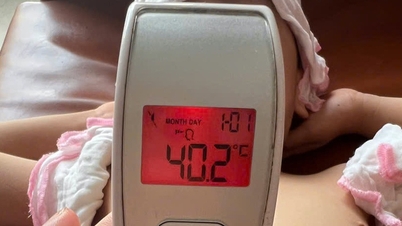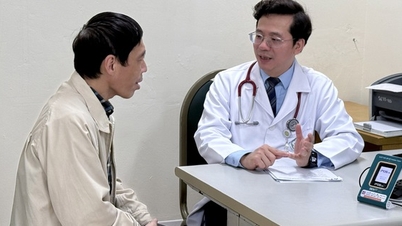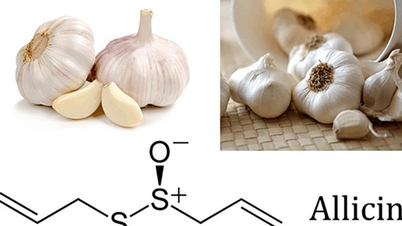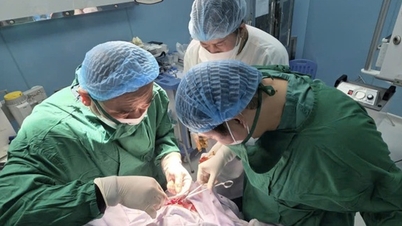Did you know that leaving dirty dishes in the sink overnight can cause dangerous diseases?
Barbara Mullan, Professor at the Institute of Public Health Sciences , Curtin University (Australia), warns that leaving dishes in the sink is a great way to accumulate bacteria. So, if your house makes this mistake, be careful. Salmonella, Listeria and E-coli bacteria that grow on dirty dishes left in the sink for a long time will not be clean even after washing. As a result, when using these dishes to eat or store food, bacteria can enter the stomach through the food.

Experts warn that soaking dirty dishes in the sink overnight can cause dangerous diseases.
Harmful bacteria in the sink can come from many sources. When handling raw meat or seafood, bacteria such as E. coli or Salmonella can remain on knives and cutting boards. In these cases, it is best to wash potentially contaminated dishes immediately to prevent the spread of germs.
The sink is a humid environment that contains leftover food debris, so it is a breeding ground for bacteria.
These bacteria are extremely dangerous. People with underlying health conditions, weakened immune systems, or women who are about to give birth can become seriously ill if infected with these bacteria. Symptoms include vomiting, abdominal pain, diarrhea, and indigestion. If the condition is severe, it can cause miscarriage and kidney failure.
What diseases are caused by Salmonella infection?
Most types of Salmonella cause stomach and intestinal infections. People infected with Salmonella develop diarrhea, fever, and abdominal pain. Salmonella strains sometimes cause infections in the urine, blood, bones, joints, or nervous system (spinal fluid and brain) and can cause serious illness.

Most people infected with Salmonella have diarrhea, fever, and abdominal pain.
How harmful is listeria infection?
Listeria infection can cause fever, chills, muscle aches, nausea, and diarrhea.
If listeria infection spreads to the nervous system, signs and symptoms may include headache, stiff neck, confusion, loss of balance, and seizures.
If you have a high fever, severe headache, stiff neck, confusion, or sensitivity to light, seek emergency care. These symptoms could indicate bacterial meningitis, a life-threatening complication of listeria infection, according to the Mayo Clinic.
What are the consequences of E. coli infection?
Some types of E. coli can cause diarrhea, urinary tract infections, pneumonia, blood infections, and other illnesses. Some strains can cause severe abdominal pain, bloody diarrhea, and vomiting.
In particular, when infected with E. coli, young children and the elderly are at high risk of life-threatening kidney failure.
Contact your doctor if you have persistent, severe, or bloody diarrhea, according to the Mayo Clinic.
Source: https://thanhnien.vn/ngam-chen-dia-ban-qua-dem-trong-bon-rua-chuyen-gia-canh-bao-185250108145654992.htm


![[Photo] Panorama of the 2025 Community Action Awards Final Round](https://vphoto.vietnam.vn/thumb/1200x675/vietnam/resource/IMAGE/2025/11/15/1763206932975_chi-7868-jpg.webp)


![[Photo] General Secretary To Lam receives Vice President of Luxshare-ICT Group (China)](https://vphoto.vietnam.vn/thumb/1200x675/vietnam/resource/IMAGE/2025/11/15/1763211137119_a1-bnd-7809-8939-jpg.webp)
![[Photo] General Secretary To Lam receives Governor of Kanagawa Province (Japan) Kuroiwa Yuji](https://vphoto.vietnam.vn/thumb/1200x675/vietnam/resource/IMAGE/2025/11/15/1763204231089_a1-bnd-7718-5559-jpg.webp)




































































































Comment (0)